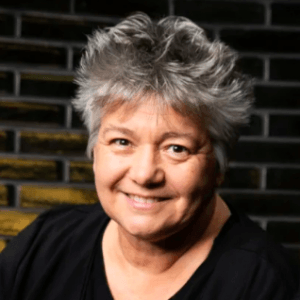The award, which is one of the country’s most prestigious, aims to advance Australian literature that presents “Australian life in any of its phases.” Lucashenko receives $60,000 in prize money and secures a place in the nation’s literary establishment that includes legendary authors such as Elizabeth Jolley, Tim Winton and Ruth Park.
“It’s kind of terrifying,” Lucashenko said after her win. “I only recently realised that I could be doing so much more in my writing and now this goes and happens. I have no idea what to do next, other than keep plugging away at my civilising mission to mainstream Australia.”
A huge congratulations to Melissa Lucashenko who's novel 'Too Much Lip' published by @UQPbooks has been awarded the 2019 Miles Franklin Literary Award. #MFLA2019 #MilesFranklin supported by @CopyrightAgency #CulturalFund @perpetual_ltd @abcnews pic.twitter.com/ld0bupDcVU
— MilesFranklin (@_milesfranklin) July 30, 2019
Shortlisted books for the prize this year included Rodney Hall’s A Stolen Season, Gail Jones’ The Death of Noah Glass, Michael Mohammed Ahmad’s The Lebs and Jennifer Mills’ Dyschronia.
Jen Webb, Director of the Centre for Creative and Cultural Research at the University of Canberra said:
“Lucashenko’s work is a powerful response to the entrenched racism that still shapes Australian culture: to the public and official turning away from the brutalities and genocide on which this nation was built, or the violence and inequities that characterise contemporary society.”
The book was published by University of Queensland Press, which also published Lucashenko’s debut book ‘Steam Pigs’ 22 years ago; a coming of age story centred on a young Indigenous woman in far north Queensland.
The work is semi-autobiographical and according to her publisher, “partly inspired by Ned Kelly and The Beverly Hillbillies, the one TV show that addressed class and made sense to her as a child.” The novel was also shortlisted for the 2019 Stella Prize, and the Victorian Premier’s Literary Award for Fiction and for Indigenous Writing.
She told The Guardian’s Stephanie Convery, “If there’s any forgotten people in Australia, if there’s any battlers in Australia, it’s brown and black people. I wanted to portray the Australian underclass in rural NSW, especially the black underclass. I wanted to talk about class. I wanted to write about the connections between poor blacks and poor whites in the country, and in the jail class.”
https://www.instagram.com/p/B0iHjlKgOUJ/
Lucashenko was born in Brisbane to Bundjalung and European heritage and much of her writing focuses on women and Indigenous realities. She has worked with criminalised women for at least twenty years and believes in the raw power of stories.
In an interview with Griffith Review in 2013, she said “Stories can be incredibly powerful, and in a sense societies are held together by the stories they tell each other. In terms of my own work, it’s like chipping away at a rock face. The short answer is, you never know. You never know who you actually touch with your work, or what impact you have. You just lean into the wind, and you try to be truthful, and you try and write work that is going to be both honest and moving. And that’s all you can do.”


